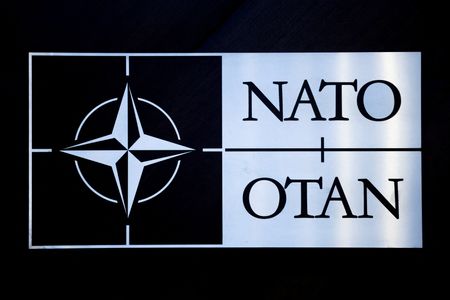By Foo Yun Chee and Sudip Kar-Gupta
BRUSSELS (Reuters) -The EU’s General Court annulled on Wednesday a European Commission decision not to disclose text messages Commission President Ursula von der Leyen and the CEO of Pfizer exchanged during negotiations for COVID-19 vaccines.
The ruling, which the Commission can appeal to the European Court of Justice, is a blow to von der Leyen, who has been dogged by criticism that the EU’s executive body lacks transparency.
The Luxembourg-based court said the Commission, which negotiated vaccine contracts on behalf of the 27-nation bloc during the pandemic, did not provide credible reasons for rejecting a New York Times request to hand over the texts.
Von der Leyen has said she could not disclose the messages, which the court considered to be official EU documents, because she did not have them.
The court, however, said the Commission had failed to plausibly justify why the texts were no longer in her possession.
“The Commission has not explained in detail the type of searches that it carried out to find those documents or the identity of the places where those searches took place,” it wrote in its ruling.
Some EU lawmakers have criticised the Commission’s handling of the vaccine deals signed at the height of the pandemic, including a contract with Pfizer and BioNTech to buy up to 1.8 billion doses of their vaccines in May 2021.
The New York Times had requested access to text messages from Jan. 1, 2021 to May 11, 2022 between von der Leyen and Pfizer’s Albert Bourla in an effort to shed light on the multi-billion-euro vaccine deal.
The New York Times applauded Wednesday’s decision, calling it “a victory for transparency and accountability in the European Union”.
The European Commission said it would closely study the ruling by the General Court – the EU’s second-highest court – and “adopt a new decision providing a more detailed explanation.”
Pfizer did not immediately respond to a request for comment.
“European leaders must not be allowed to legislate in complete opacity, and safeguards must be put in place,” said French Member of the European Parliament Manon Aubry, among those lawmakers seeking more clarity on the pandemic-era contracts.
Transparency International, meanwhile, said it hoped the ruling would force the Commission to change what it called the institution’s “restrictive attitude to freedom of information”.
“This ruling is about more than transparency: it is about reinstating the institutional accountability the European Commission has been sorely lacking,” said Shari Hinds, the organisation’s policy officer on EU political integrity.
(Reporting by Foo Yun Chee; Editing by Benoit Van Overstraeten and Joe Bavier)













